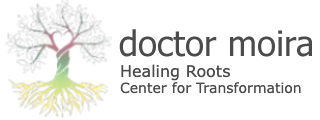Insufficient sleep is probably the most prevalent sleep disorder in America. Our busy lives and pressure to get things done and get ahead, plus financial worries are typically sleep disrupters. A lack of balance in life contributes to lack of balance in mind, body and sleep.
There are many factors contributing to problems with sleep and it is essential to identify the underlying cause and address it on an individual basis. Inadequate sleep affects the ability to process information, and affects concentration, focus and memory.
There are several types of sleep disturbance, an inability to fall asleep, waking up throughout the night and waking up in reaction to disturbing dreams. Difficulty falling asleep is often accompanied by having difficulty slowing down the mind, anxiety, stress, too much stimulation, worry and emotional turbulence which may include any feeling/issue that is unresolved.
Individuals suffering from PTSD often become hypervigilant at night and have difficulty calming the mind and body. People who suffer from depression often have difficulty staying asleep or sleep too much. Chronic pain patients may have difficulty sleeping and lack of sleep in turn amplifies their pain. When a person is chronically stressed, then there may be a disruption in cortisol rhythm and this in turn can affect the feedback system of the hypothalamus, pituitary and adrenal gland and consequently affect sleep. A lack of sleep affects mood and we often become negative and irritable with a lack of sleep. Either too little or too much sleep affects our circadian rhythm. Sleep is an indispensible body function.
Sleep disturbance is common amongst women during menopause. This is often caused by night sweats, thus the first priority is to cool the hot flashes and night sweats. Decreased estrogen triggers hot flashes. Progesterone has a calming effect on the central nervous system and when it is decreased I have experienced that it affects sleep. Erratic hormone levels can be stabilized with herbs, acupuncture or hormone replacement.
When assessing insomnia, it is essential to determine if an individual has sleep disordered breathing or sleep apnea. People with sleep apnea stop breathing repeatedly throughout the night. Breathing can stop sometimes greater than 100 times per hour. These disruptions deprive the individual of both oxygen and sleep. The most common symptom of sleep apnea is loud, heavy snoring or irregular snoring, snorts, gasps and unusual breath sounds during sleep. Other symptoms include long pauses in breathing during sleep, excessive daytime sleepiness, fatigue, changes in alertness, memory and morning headaches. It may be that your partner will be the one to identify your symptoms. If someone has sleep apnea, it is essential that it be diagnosed and treated as it is one of the underlying causes of cardiovascular disease. A referral to a sleep center is necessary for an adequate diagnosis and treatment of sleep apnea.
Deep restorative sleep depends on being able to transition from daytime sympathetic mode of functioning to a calm parasympathetic mode. This shift requires an “at ease” with self. As we close our eyes our attention shifts inward, the external distractions disappear and we are left with our inner world.
I recommend that lifestyle be a first line treatment for insomnia and this includes sleep hygiene, exercise and healthy food. Good sleep hygiene means having a regular bedtime, decrease stimulation prior to sleep, which includes turning off the computer at least an hour before bed. I often recommend individuals develop a ritual before bed and this could include a mineral salt bath, 20 minute meditation, cup of calming tea or listening to classical music.
Exercise helps to calm the mind. Yoga or some type of stretching, plus deep abdominal breathing helps to calm the nervous system. Aerobic exercise is grounding and helps to balance the mind-body energies.
Stimulating foods and drinks ought to be avoided later in the day. Stimulating foods include anything with caffeine, sugar and excess alcohol. It is useful to avoid foods to which you are sensitive. Late night eating is generally not a good idea, especially if the food is rich or heavy. However, it may be useful for individuals who are reactively hypoglycemic to have a light snack of a complex carbohydrate and protein prior to bed.
There are a number of herbs that I have found useful to help individuals relax into sleep. While Valerian root is the most researched herb for sleep, it must be noted that some people have a paradoxical reaction to it. California poppy, Hops flower, Passionflower and Skullcap are my favorite herbs for promoting sleep. Melatonin often decreases nighttime awakenings and is probably the best choice for travel and changing time zones. Theanine is an amino acid that supports relaxation and calms the mind. Most sleep formulas will include 5-HTP, Vitamin B6 and B12 to raise serotonin levels and increase both REM and deep sleep.
Hypnotherapy is an interactive process that can support you in removing obstacles to sleep, activate the parasympathetic nervous system and teach the mind-body to relax. It is a state of deep relaxation where the subconscious mind has access to feelings and thoughts that fuel insomnia. Each session is like a journey the purpose of which is to achieve your desired state, in this case sleep and then that experience is anchored in (reinforced) in your own words.
Remember sleep restores our physical and mental energy. Discover a routine that works for you and seek support from your healthcare provider



